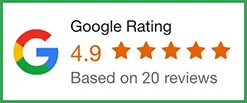Measuring the impact of different link building campaigns on your website’s ranking requires a multi-pronged approach, as there’s no single perfect metric. Here are some key strategies:
Track Ranking Changes:
- Monitor keyword rankings: Use tools like Google Search Console, Ahrefs, or SEMrush to track your website’s ranking for relevant keywords before, during, and after each link building campaign.
- Isolate campaign impact: Focus on keywords targeted by the specific campaign to isolate its influence on ranking changes.
- Consider timeframes: Remember that ranking changes can take weeks or even months to fully manifest, so be patient in your analysis.
Analyze Backlink Profile:
- Use backlink tracking tools: Utilize tools like Ahrefs or Majestic SEO to monitor the number and quality of backlinks acquired through each campaign.
- Compare backlink profiles: Analyze how the newly acquired links compare to your existing backlink profile in terms of domain authority, relevance, and anchor text distribution.
- Identify impactful links: Use tools that score individual backlinks based on various factors to pinpoint the most influential ones within each campaign.
Combine with Other Metrics:
- Traffic and referral analysis: Track any changes in organic traffic and referral traffic originating from the websites you gained links from.
- Engagement metrics: Observe changes in bounce rate, time on site, and conversion rates for traffic coming from linked sites.
- Brand mentions and social media: Monitor brand mentions and social media engagements that might stem from your link building efforts.
Control Groups and Testing:
- Consider A/B testing: If possible, set up control groups of pages not included in link building campaigns to compare their ranking changes and isolate the campaign’s impact.
- Track internal linking: Monitor changes in your internal linking structure and how they might influence the performance of newly linked pages.
Remember:
- Correlation doesn’t equal causation: While seeing ranking improvements after a campaign is encouraging, other factors might also be at play.
- Long-term perspective: SEO is a long-term game, and the true impact of your campaigns might not be evident immediately.
- Holistic approach: Don’t solely rely on ranking changes; consider the broader impact on traffic, engagement, and brand awareness.
By combining these strategies and analyzing the data holistically, you can gain valuable insights into the effectiveness of your link building campaigns and continuously refine your approach for better results.





